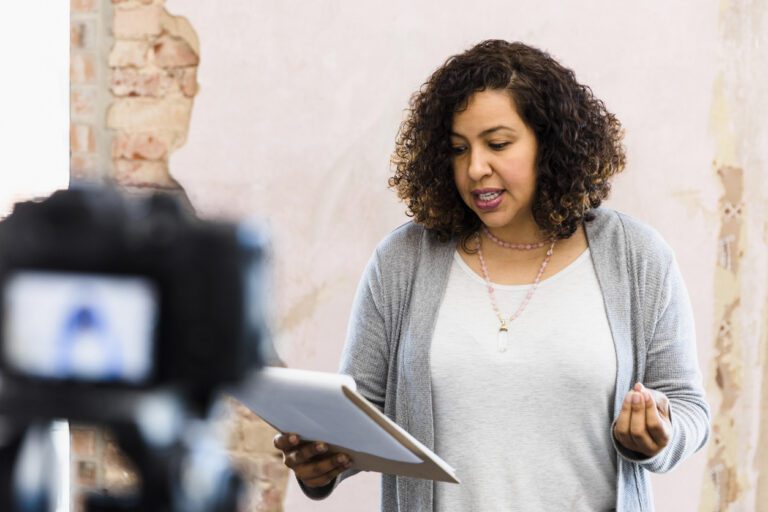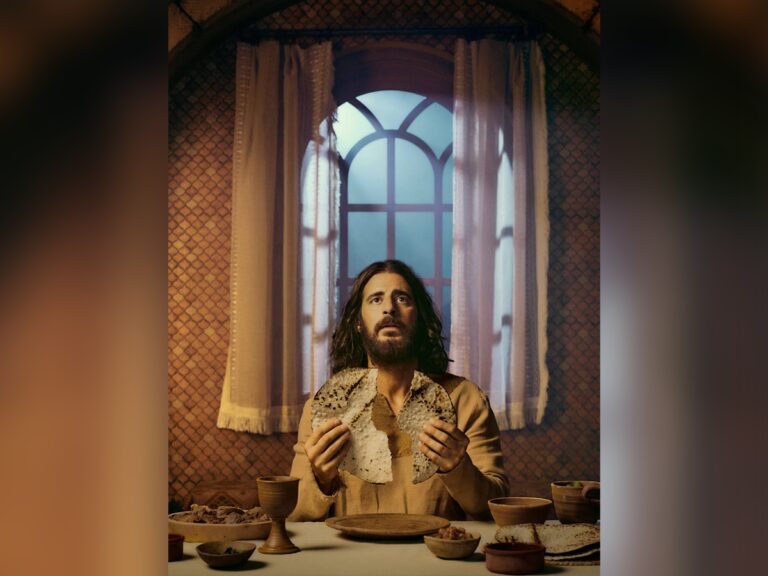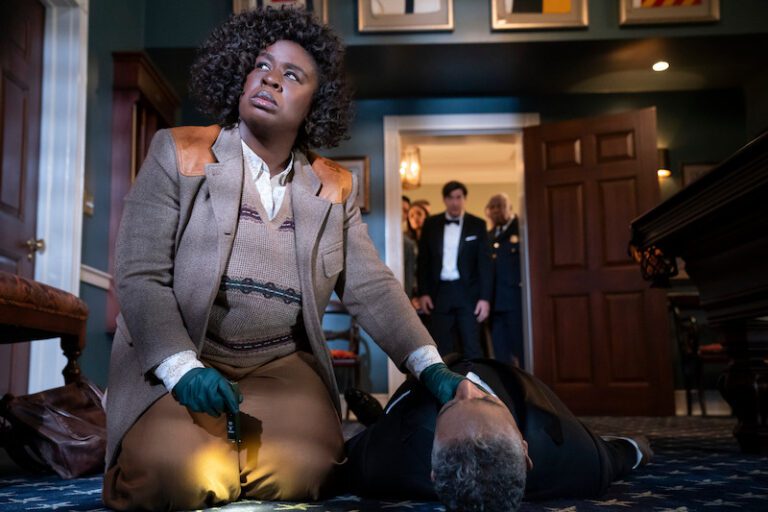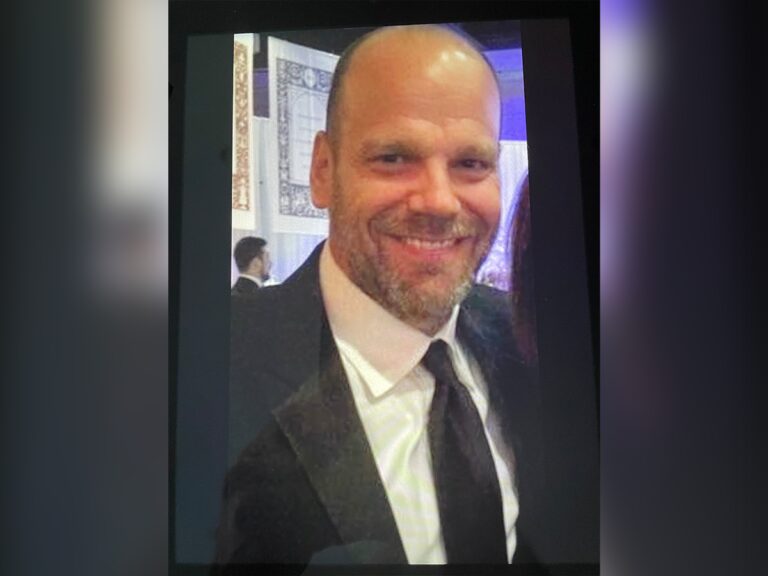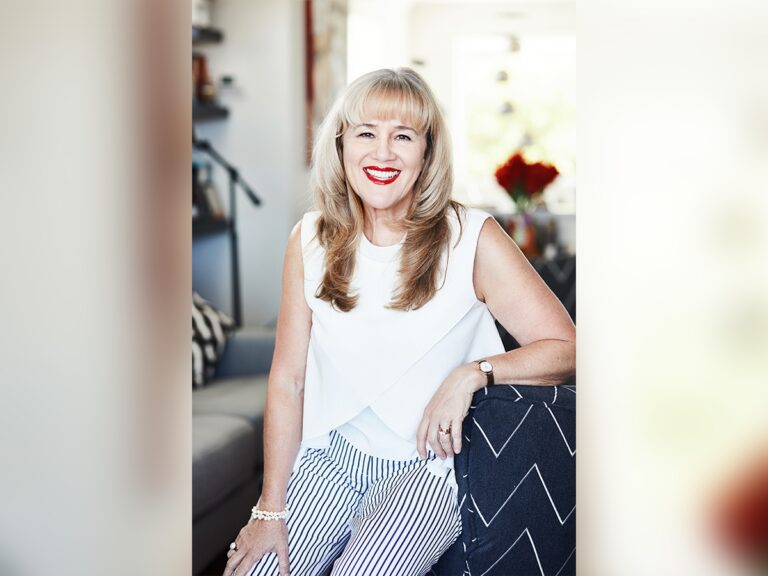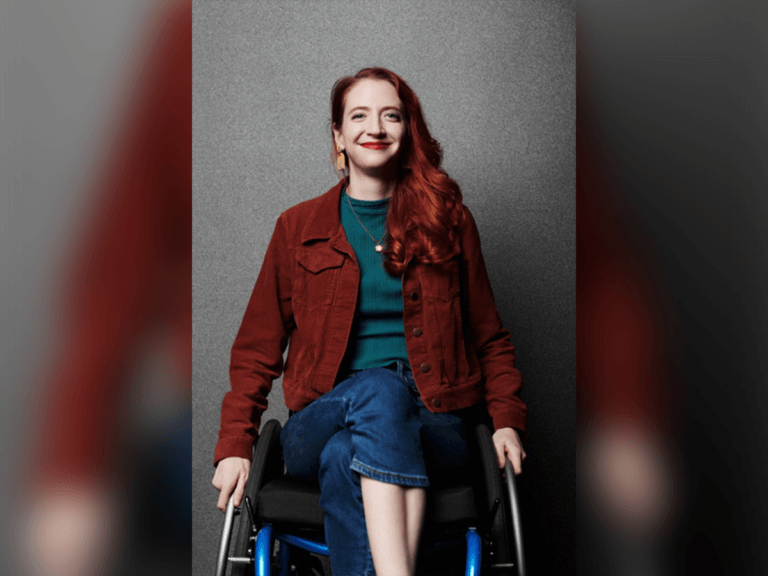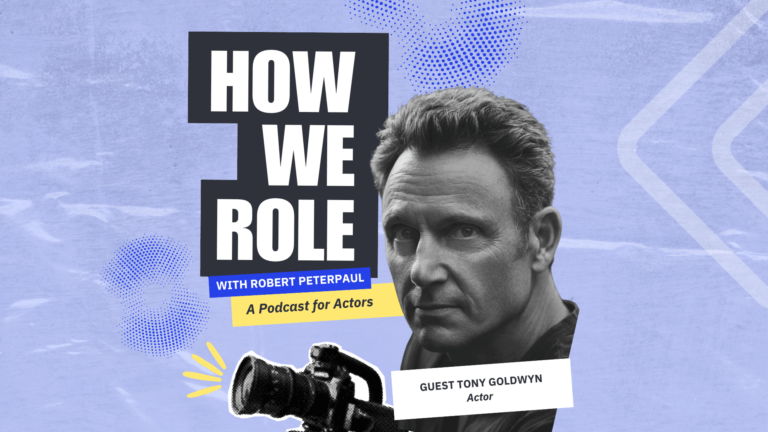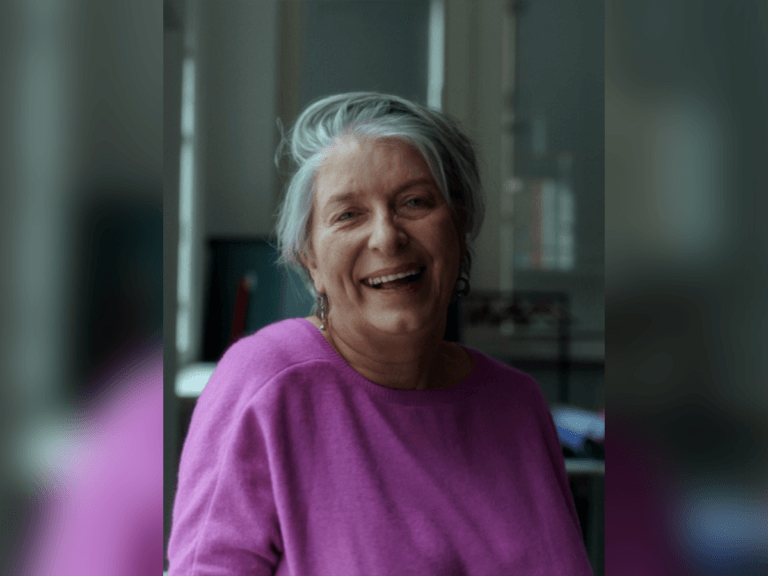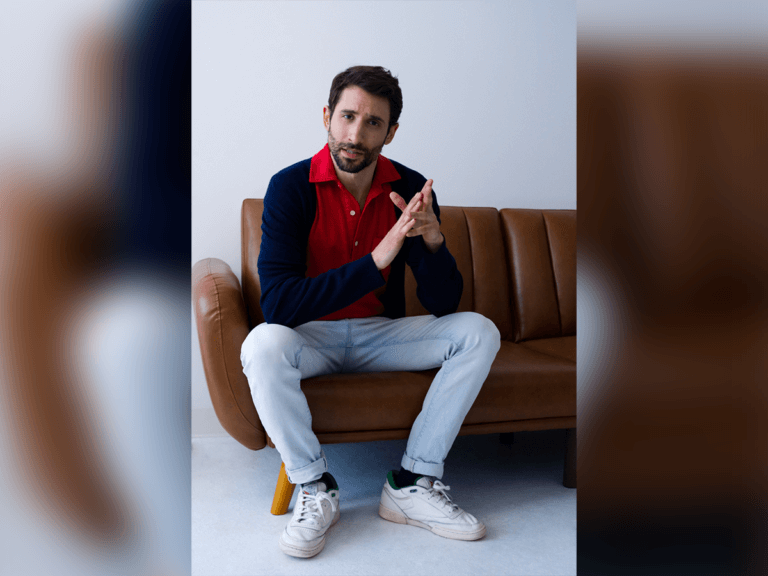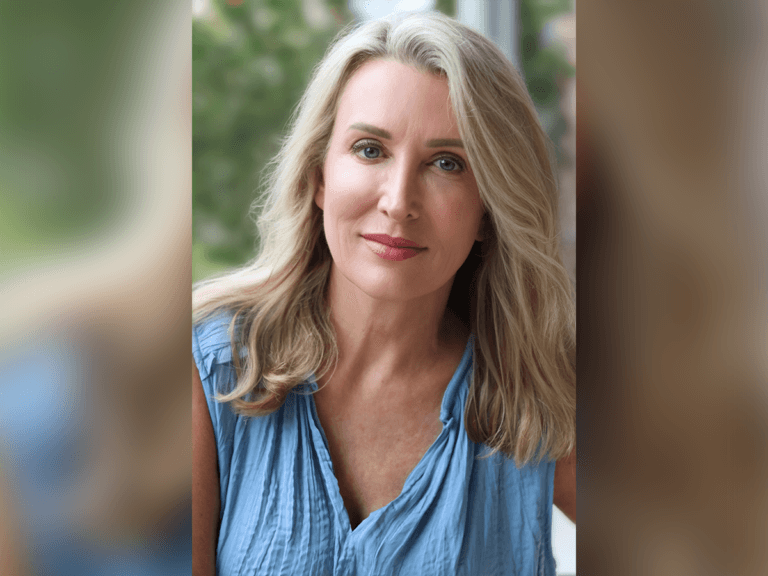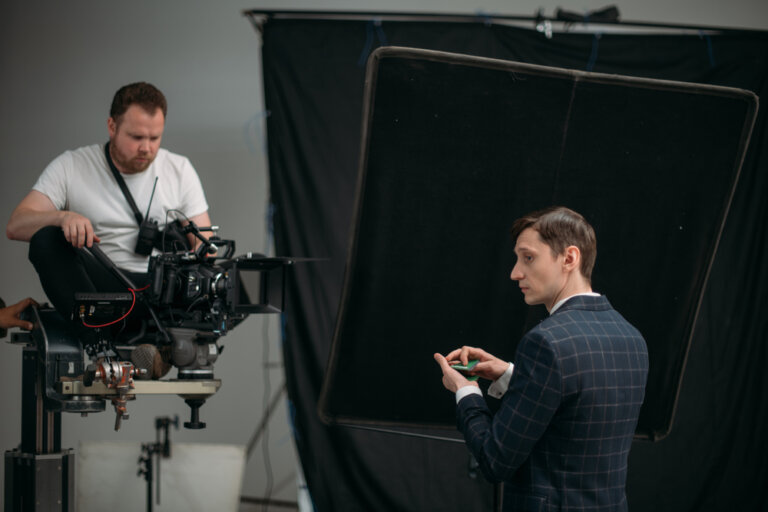We had an eye-opening conversation with actress Carey Cox, who plays Rose Blaine in Hulu’s The Handmaid’s Tale. Cox is a New York-based actress who has built an acting career around resilience and a commitment to authentic disability representation.
Diagnosed with Ehlers-Danlos Syndrome, Cox began using a cane in her 20s and made a conscious decision to embrace her identity as a disabled performer. After earning her MFA in acting, she broke through in the Broadway revival of The Glass Menagerie. During that time, she was understudying the role of Laura Wingfield, who is one of the few classic roles written as disabled. Cox later played the role at the Guthrie Theater.
Beyond the stage, Cox advocates for casting actors with disabilities in disabled roles, challenging the industry to move away from stereotypes. She’s married to actor Joseph Kibler, who is also disabled. They are expecting their first baby. In this interview, she shares her journey, challenges and vision for a more equitable industry.
Insights: Lessons From Carey Cox
- Embrace and highlight your disability in auditions to find roles that match your authentic self.
- Network with the community of disabled actors and industry advocates.
- Focus on honing your craft to ensure your talent stands out.
Thinking about joining Casting Networks? Sign up for a free trial today!
You were introduced in Season 5 of The Handmaid’s Tale as the character Rose Blaine. Tell us about your audition.
To audition for Rose Blaine, I was given sides and submitted a self tape. If I remember correctly, I was then given a chance to re-tape with notes from casting before a final audition over Zoom with casting and producers. I remember having lots of time to discuss the character and the circumstances of the scenes, which was so helpful. I did not read with any other actors until I was on set, but every actor I worked with made me feel so welcome and comfortable from the start.
Rose is portrayed as having congenital hip dysplasia, a condition that causes a limp and a need for a cane. In real life, you have a disability called Ehlers-Danlos Syndrome. Please share your journey with us in two parts:
a) When did you find out you had Ehlers-Danlos Syndrome?
Ehlers-Danlos Syndrome is a genetic connective tissue disorder. I was born with it but was not diagnosed until my early twenties. My strange symptoms/medical experiences began in my teenage years, first when I was thirteen and diagnosed with a mitral valve prolapse, then when I was fifteen and sixteen and had repeated collapsed lungs, known medically as a spontaneous pneumothorax. I was hospitalized and had a surgery called pleurodesis to fix my lungs. I kind of just moved on with life until I began to have issues with my joints while acting, dancing and waiting tables in my final year of undergrad and immediately after.
I saw a few doctors for my joint pain and gait issues who couldn’t find anything wrong, so I finally got the bright idea to plug my current and former medical issues into Google on the off-chance of finding a connection. The internet steered me towards a genetic condition called Marfan Syndrome that matched a lot of what I had been through. I reached out to a nurse with the Marfan Foundation who was able to connect me to a geneticist in North Carolina, where I would be going to grad school. After over a year and a good deal of testing, this geneticist diagnosed me with a different connective tissue disorder, Ehlers-Danlos Syndrome. EDS is diagnosed by ruling out certain genetic conditions through bloodwork and then conducting a thorough clinical exam to see if a patient matches enough criteria for the condition.
My family and I were relieved to have an answer, and a bit frustrated that it had taken so long that I had potentially damaged my body during years of not knowing. I went through periods of worrying whether or not my condition would progress, or if my life would look “normal,” but eventually I was able to use my new knowledge to adapt and give myself grace and compassion.
b) You started using mobility aids and transitioned to auditioning as a disabled actor. What steps did you take to transition?
When I first moved to NYC after grad school, I tried to pass as non-disabled, which I had attempted with mixed success while in school. My grad school allowed me to work at the wonderful PlayMakers Repertory Company, where I was lucky enough to gather a lot of professional experience on stage. [It’s also] where I had to confront the idea that I had different obstacles and limitations than other actors.
For the most part, the directors I worked with at PlayMakers were very understanding of my needs, but when I moved to NYC, my gait became more unsteady, and some of my symptoms progressed. I began using a cane to get around to my day job and my auditions, but I would leave my cane in the holding rooms and try to hide the fact that walking was becoming difficult.
Eventually, directors and casting directors began to notice and ask me what was wrong, which would lead me to reveal my disability. I noticed a drop in interest and callbacks once my difficulty walking became more noticeable. Around the same time, I ran across the Equity Principal Audition for The Glass Menagerie understudies and was surprised and intrigued to see that they were seeking disabled actors for Laura’s understudy. I went into that audition with my cane, and from there had two callbacks before landing the role.
That play introduced me to the world of disabled actors, a community I hadn’t known about before. I did not yet have an agent, not for lack of trying, but I researched as many disabled actors as I could, and I kept a lookout for opportunities geared toward that community. I eventually saw that Queens Theatre was hosting the Theater for All program for disabled actors, so I eagerly applied. In that program, I was able to connect with other disabled actors, which led me to my first agent, Gail Williamson. She eventually passed her legacy on to Katie McGrath, who is now with Arise Artists Agency.
The key to finding work for me was finding my community, which guided me toward the agents and casting directors who took an interest in disabled actors, and who saw us as a valid part of the industry, and an important group of humanity to authentically represent in theater, TV, and film. Now, in all of my headshots, I don’t hide my mobility aids. I’m an actor and a person like anyone else. I can play any character that is right for me, but my disability is a part of me and isn’t a bad thing. It’s just a thing.
Was Rose written with a disability, or did that come later after you were cast?
Rose was written with a disability, which was so cool! She was written as someone who could walk, but had difficulty and used a cane, just like me. I also use a wheelchair at times, but I find that disabled characters with gait differences are pretty rare, especially for female characters or romantic interests.
When characters are written with disabilities, they are often stereotypical or fit a narrow mold of disability, which, especially for femme-presenting people, often means ruling out more “uncomfortable,” “confusing,” or “unattractive” disabilities. In my experience, that often extends to people who limp. It was very refreshing to audition for a romantic role that also limps.
You received a BFA in Musical Theatre from Santa Fe University of Art and Design, followed by an MFA in Acting from UNC Chapel Hill. What inspired you to pursue a career in acting? Why did you choose to move to NYC instead of Los Angeles, CA?
I’ve always loved theater since I was a little kid. I am also a writer, musician, and visual artist. The theater was always especially magical to me. It allowed me to learn about other people, history and the world while making tons of friends.
The show that sealed the deal for me was Once Upon a Mattress in high school. I played Winnifred in that musical a few months after I had my lung surgery and my brother passed away from Cancer. It was a very healing and life-affirming experience for me and convinced me to pursue theater when I went to college. I always had an interest in TV and film, but theater is my first love, which is what brought me to NYC. My grad school had a large network of alumni in New York, and the community was very attractive to me. Ten years in and I still love New York.
Please talk about your experience understudying for Laura in Broadway’s The Glass Menagerie.
I found out about the auditions for the understudy cast of The Glass Menagerie through the Equity website. I had always adored that play and Tennessee Williams in general, and I felt a deep connection to Laura, who I think is a very misunderstood character. For the EPA, I performed a monologue from Alma in Summer and Smoke, and in the callbacks, tried to bring as much of my love for Laura into the room as possible.
I find Laura to be a character with tremendous desire and need, trapped by overwhelming obstacles. I also deeply connected to her anxious attachment to her brother and mother. I tried to be as vulnerable and grounded as I could while fighting the greatest nerves I have ever experienced! I was so thrilled when I got the role.
I performed one time during the run, which was a magical out-of-body experience. Everyone was so kind to me. As an understudy, I was required to be either backstage or in the audience for every performance. We also had an understudy rehearsal every Thursday.
Before my one performance, we had a brief put-in rehearsal where we went over a few physical moments in the show. A couple of years later, I had the opportunity to play Laura for three months in a production of The Glass Menagerie at the Guthrie Theater directed by Joe Haj. After hearing every performance during our Broadway run and performing so many times at the Guthrie, I think that I will have almost every word of that play burned into my brain forever!
You and your husband, Joseph Kibler, wrote, directed, produced and starred in a short called Adoptive, which was made for the Easterseals Disability Film Challenge. Walk us through the making of Adoptive, from start to finish.
My husband Joe and I, who are both SAG-AFTRA, were able to make our short film Adoptive on a tight budget thanks to SAG waivers through the Easterseals Disability Film Challenge. The nature of the competition, the short time window, the volunteer requirements and the permission from the union meant that we were able to make our short film on a very tight self-funded budget and a whole lot of favors and love.
The theme for the competition that year was “buddy comedy,” which is kind of a perfect way to describe my marriage to my sweet and hilarious husband. It seemed like a no-brainer to make something together. We are both actors and writers with backgrounds in comedy who have similar interests (Joe currently has a Blacklist-recommended screenplay called The Way We Walk in development, and I am developing a play called At Least You Have Your Health).
We found that writing, producing and directing together came very naturally. Joe’s film school/documentary background and my theater school background meshed beautifully together, and with the generous help of lots of talented people, we had a fantastic time.
We were inspired to write about disabled people facing the adoption process. We were intrigued by research we had done into some of the complicated sides of adoption, and how it intersected with the disability community. We had toyed with writing a pilot about that idea and decided to play with how we could find unexpected comedy within the concept of our short.
In the short, our characters, who both have disabilities and have just eaten “special brownies” for pain relief and relaxation, suddenly realize that their adoption agent will imminently arrive to conduct their adoption home visit. In a spiral of cannabis-induced paranoia, they frantically try to baby-proof their apartment, panicking that any evidence of their disabilities will make them appear incompetent to parent. When their adoption agent rolls up in a wheelchair with her medical cannabis, they realize that their worries are based on society’s misconceptions rather than any objective reality. We are currently developing the pilot that inspired it all!
You’ve performed on both stage and screen. Do you have a preference, and how do the experiences differ for you?
I honestly love both stage and screen equally, but they are both so different. Both require a deep understanding of text and character, but I use different techniques to approach both.
On stage, much more focus is put on creating a solid, repeatable, reliable form; and filling that form with spontaneity and discovery every night. I’ve found it to be about finding the small surprises inside the familiar, becoming so comfortable with the structure that discoveries come out of nowhere; like when you say a word so many times that it suddenly starts to sound strange to you. The predictable shape is what grounds you and allows you to discover what can be fresh every night.
On-screen, a different kind of trance occurs, where the thing that is so familiar is the character and the reality itself, as opposed to the shape of a scene. Screen acting requires such total flexibility in potential choices that the truth of the world and the relationships become most vital to hold onto.
Both stage acting and screen acting do funny, fascinating things to how I perceive time. Both involve long stretches of sitting on the sidelines watching brilliant people work. The strangest part about screen acting is having to remember that there will be an audience someday. I often forget that once something has wrapped, people will be watching it eventually!
Have you noticed a shift in how the entertainment industry is approaching disability representation? What are some misconceptions about disabled performers that you’d like to challenge?
In some ways, the industry has become much more open to disabled representation, while in other ways, it has not. I have many friends in the disabled community who are older than me and feel they have been engaged in the same battle for decades, repeating the same talking points and fighting for the same acceptance.
We are always grinding forward and improving, but in a sort of three steps forward, two steps back, jerky, halting way. We find that progress is both cyclical and works like a pendulum: Every ten years or so, we become more open-minded as an industry and a society and welcome all kinds of people and diversity. Eventually, that openness becomes something stricter and more defined, which leads to tokenism and stereotyping, though well-intentioned. After that, people become disillusioned with that tokenism and reject the idea of inclusion altogether as a symbol of preachiness or self-righteousness.
While we have seen many more opportunities and we have many more disabled actors working than ever before, we are also in an era of bigoted pushback against DEI and “wokeism” that dehumanizes us and puts us in a box. I hope that in the next few years, the pendulum will swing back once again, and we will be able to take more advantage of the great strides we have made, and we will be able to see how far we have come.
In general, we need more disabled names to be able to get projects greenlit. We need more disabled writers and producers. Unknown disabled actors need to be trusted with big roles so that they may take on more powerful positions in the industry, and non-disabled actors need to stop cripping up. Until disabled actors are allowed to play any role, disabled actors should at least be able to play disabled roles, to level the playing field and help create a more equitable industry, because entertainment is an industry like any other, and should be open to anyone with talent and skill.
Eventually, we should be able to play any character, not just those written as disabled. We should be seen as actors first and foremost. Although there are more success stories now than ever, that future does sometimes still seem many years off, and there is work to do to get there.
You and your husband are expecting your first child. How do you think having a child is going to impact your career?
We think that having a child will give us great confidence, motivation and perspective. Having our little guy is going to remind us of what is important and ground us in the here and now. Disabled people already have to be so adaptable and creative, and we are both certain that we will apply that flexibility to parenting.
We are also both silly and imaginative, and we really love activities that kids would also love, so we know that we’re going to have a ton of fun. When talking with Elisabeth Moss about parenting and acting, she told us that having her child made her more focused on her craft in a way, because if she was going to spend any moment away from her baby, it had to be for something amazing and fulfilling. It will be wonderful to have that kind of discernment and drive. If we are going to spend time away from our little guy creating, it had better be something damn good. Coming home to him at the end of the day will be the greatest reward.
What advice would you give to aspiring disabled actors who want to break into the industry?
Take classes! Work on your craft! There are barriers to getting into certain schools for disabled actors but don’t take “no” for an answer and seek out the alternatives. Do plays and make films with friends. Read books on acting techniques and read plays, practice monologues and self-taping. Get so good and so competitive that no one can count you out because of your disability. Let your talent and your craft be undeniable.
You will still face limitations and discrimination, and the opportunities will still be far fewer than for non-disabled actors, but you won’t waste those few opportunities, and your sense of belonging will speak for itself.
Finally, find your community! Find other people like you because they’re out there. If they’re your competition, GOOD. They should be! There should be enough of us, and we should all be so good that we are both each other’s competition and our comrades. Find the disabled actors who are booking the roles you want and learn from them, root for them, be their friends and let them make you better. Our acting community deserves to function like any other community and that starts with us!
Tell us about your upcoming lead in the indie film Where Did the Adults Go?
I play a character named Cynthia, a struggling author who yearns to start a family with her partner Makeila. Cynthia is an ambulatory wheelchair user like me, which is so rarely represented in film. On the anniversary of her parents’ death, she and her two brothers, Bryce and Miles, gather at their parents’ opulent house, to memorialize the tragedy and to make a divisive decision.
Playing Cynthia was amazing because she is such a complex character. She comes into the film with a lot of grief, ambition, resentment, and pride. It was so rewarding to work on an intimate, character-driven drama for my first on-screen lead.
Follow Carey Cox on Instagram.
You may also like:
